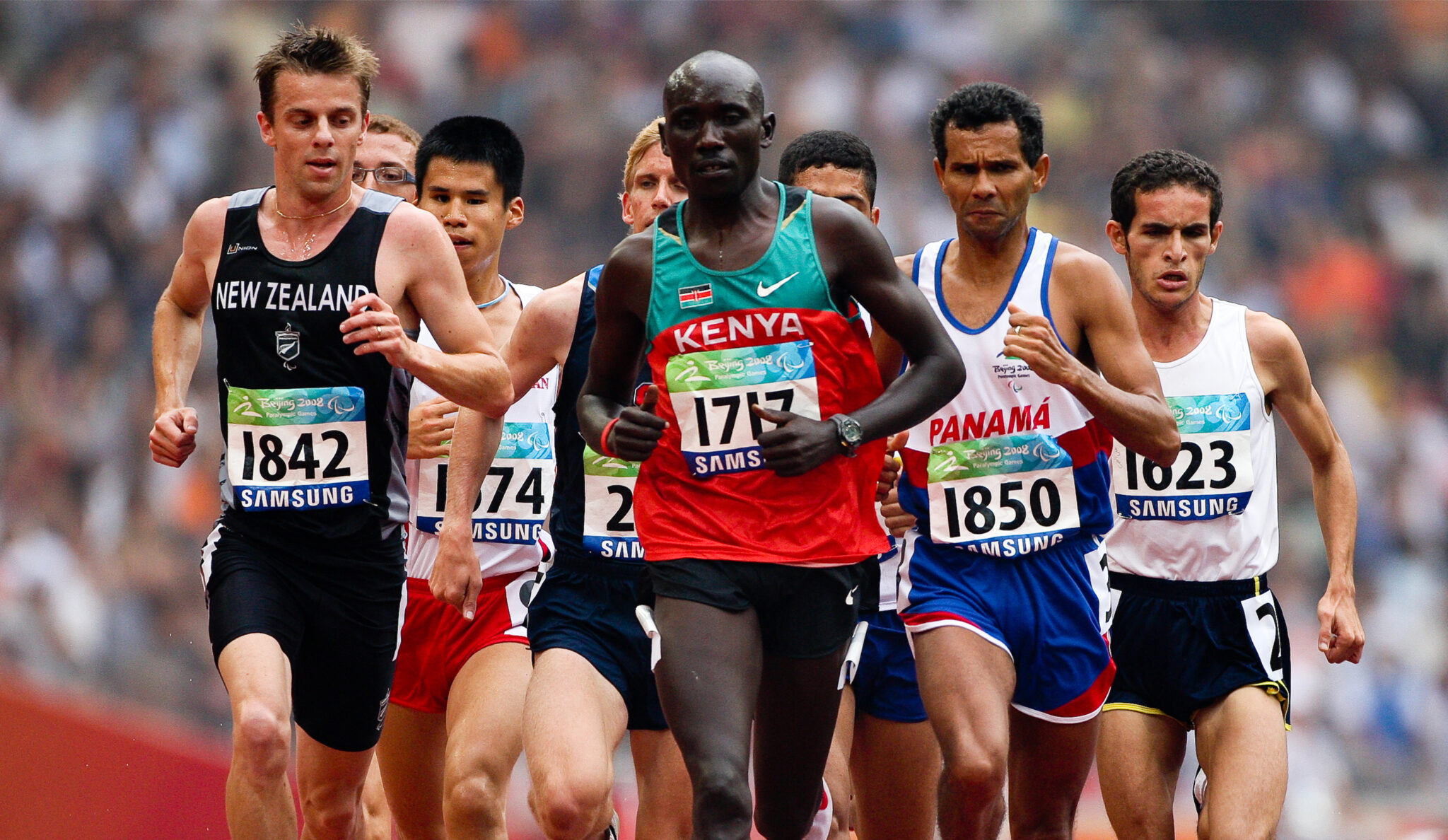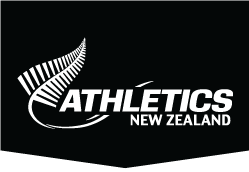News & Updates
Para Athletics World Championships Time Tunnel – Tim Prendergast

Tim Prendergast (number 1842) enjoyed a top-class international career spanning almost a decade-and-a-half. Credit (Getty Images).
In the next in our series focusing on New Zealand’s Para Athletics Championship legends we shine a light on the career of middle-distance runner Tim Prendergast.
There is little doubting the significance of the Para Athletics World Championships to the career of Tim Prendergast.
The visually impaired athlete claimed an epic victory by just 0.03 seconds in the 800m on his debut appearance in the event 21 years ago – a performance which unquestionably acted as a major springboard to his gold medal-winning success at the Athens Paralympics.
A triumph in the northern French city of Lille, which remains one of the highlights of a lengthy international career which spanned almost 15 years.
Raised in Wellington, Tim started running as a year nine student at Wellington College student running alongside the likes of former New Zealand Cross Country champion Ben Ruthe.
“It was an amazing time to be a middle-distance runner in Wellington and we had a young lad called Nick Willis emerging at the time,” explains Tim. “Having these fully sighted guys pushing me hard to be the best I could possibly be was a real factor in my success.”
At the age of 21 he made his Paralympics debut in Sydney and claimed double silver in the 800m T13 and 1500m T13 behind the Tunisian Maher Bouallegue. It was an outstanding achievement – particularly as the Kiwi – found out two days before his 1500m final he had a navicular stress fracture and post-Sydney he spent eight weeks in a cast.
“Post injury I had to be really careful but the winter before the 2002 World Para champs I build a really strong base and by the summer of 2002 I felt really strong,” he adds.
In Hastings in January, he showed his potential by clocking 1:53.23 – a time below the official 800m T13 world record
Granted two months’ leave from his then employers – the Royal Foundation for the Blind (now Blind Low Vision NZ) – he then spent six weeks training and competing in the UK.
“It was not easy back then. I spent time in the UK dossing on people’s couches but I was lucky to get in some good races and I spent time training with the likes of Rees Buck and Ben Ruthe, so by the time I got to France I was in tip top shape,” explains Tim who was coached by Neville Paul during the phase of his career.
The third edition of the Para Athletics World Championships was described by Tim as a lot more “low key” than the event we see today. However, boasting a team with a nice blend of youth and experience, Tim looks back on the event with fondness and with the 800m first up, he was hopeful of reversing the finishing position with Bouallegue from their Paralympic showdown in Sydney.
“There was a little bit of rivalry there. He had also beaten me in Madrid (at the 1998 IBSA World Championship and Games), so I had never previously beaten him.”
As it turned out a pedestrian first lap of 63 seconds fell perfectly into the hands of the Kiwi – ten years the junior of his Tunisian rival – as he came home in a blistering final lap of 53 seconds.
“I knew I had that top end speed, so I was able to sit and kick and I ended up beating him by three one hundredths of a second,” recalls Tim. “Even if I had been fully sighted I would have struggled to see if had won the race, but with just five per cent vision it was so much harder. It was a long wait to hear the announcement in French that I had won.”
Tim returned later in the championship to compete in the 1500m but engaged in another titanic tussle with Bouallegue this time missed out on gold by an agonising 0.04.
Reflecting on his efforts in Northern France it was a meet he can look back on with a huge amount of pride.
“Winning that gold medal in Lille gave me the belief that anything was possible and it acted as the catalyst which allowed me to bring home the spoils in Athens two years later (when he won 800m T13 gold at the Paralympic Games).
Tim returned for his second Para Athletics World Championships in Assen, Holland a more experienced athlete but in the previous four years the strength in depth of his events had significantly improved.
His Tunisian rival from the past had been replaced by a Moroccan and 800m and 1500m gold was secured by Abdelillah Mame with Tim settling for silver in both events.
“I was beaten by the better guy but I was proud of the two silver medals,” he says.
A disappointing showing at the Beijing Paralympics followed in 2008 – when Tim claimed fourth in the 5000m, fifth in the 1500m and sixth in the 800m.
The Kiwi continued competing and made his final appearance at the 2011 Para Athletics World Championships – where he had the honour of reading the Athletes’ Pledge – at QE II Stadium in Christchurch. Elated to compete at a home championship, that joy was however coloured by the fact he had a troubled build up grappling with on ongoing calf injury.
“I fooled myself into thinking I could get to the start line in shape and I pulled my calf around 800m into the 1500m.” He limped home in 11th his competitive quest over in Christchurch. Sustaining the injury on the opening day of the championships he could have walked away from the competition in a sulk but he chose to support the event and the other Kiwi competitors. “It was a really special event with many youngsters getting their first exposure to Para sport.”
Tim continued competing for one more year, signing off from the sport by competing at his fourth Paralympic Games in London. There he competed with pride, placing fifth in the 800m in 1:55.85 and sixth in the 1500m in 3:53.60.
“I was out of the medals, yes, but I could still hold my head up high. I produced some solid performances at the age of 33.”
Tim who today lives in London – with his ten and seven-year-old boys – and works in learning and development with the Santander bank, looks back with immense pride on his running career and record at the Para Athletics World Championships.
His four medals in the event undoubtedly contributed to the growth and buoyancy of Para sport in New Zealand and he has been blown away by the development of Para athletics.
“The level of performances we are seeing today is incredible. Para sport is treated as elite sport – as it should be – and it is fantastic that 21 years after my gold medal success in Lille, the event is returning to France in the capital of Paris, which is a symbol of how far the event has come.”
LATEST NEWS
- Nagel at the double and Speakman breaks national hoodoo
- Voss reigns in 60th anniversary Red Stag Rotorua Marathon
- Nagel secures national road mile title with record-breaking display
- Twelve named in initial NZ World Athletics U20 Championships team
- Red Stag Rotorua Marathon set to toast special anniversary
- Red Stag Rotorua Marathon all set for historic championship programme
- Weekly Round Up: 29 April
